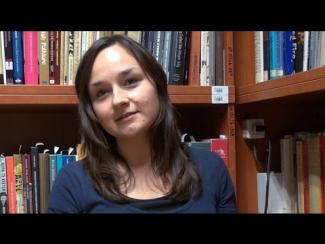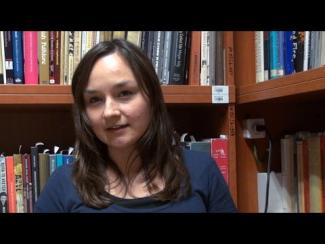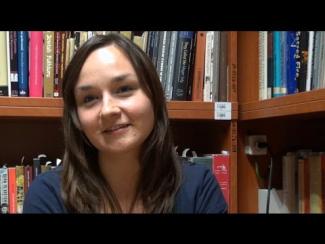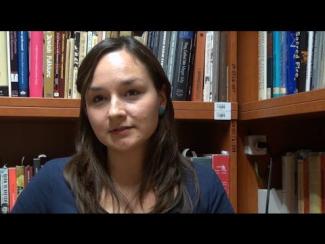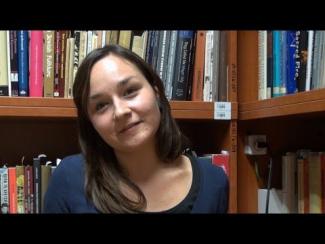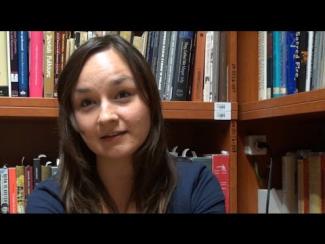The Yiddish Book Center's
Wexler Oral History Project
A growing collection of in-depth interviews with people of all ages and backgrounds, whose stories about the legacy and changing nature of Yiddish language and culture offer a rich and complex chronicle of Jewish identity.
Katarzyna Leszczyńska's Oral History
Katarzyna Leszczyńska, Jewish studies scholar who grew up near Oświęcim [Auschwitz], was interviewed by Agnieszka Ilwicka on October 9, 2014 in Wroclaw, Poland. Although to the outside world coming from Auschwitz seems very significant, she likens it to growing up on a volcano and not finding it notable because one doesn't know anything else. Katarzyna talks about how her family, like many Poles, felt that they were victimized before and during the war. Unusually, her parents left Catholicism and joined an Evangelical church. She considers how her history and her parents' religious views and interest in the larger world shaped her as a person. Her family was always interested in Jews and Israel due to their belief that Christianity came out of Judaism. Her mother, an English teacher, met with many Jewish youth groups visiting Auschwitz. Katarzyna's mother gave her a copy of "The Diary of Anne Frank" which is not well known in Poland, for her twelfth birthday and she visited the concentration camp for the first time that same year. It became real to her that Jewish people had made up a very large and culturally vibrant part of her town before the war. She created a lesson for her peers from memoirs and poetry and included historic details that were shocking to them. Katarzyna went to University College London to study German and Hebrew and began studying Yiddish in her sophomore year. Although she remained a dedicated Christian, she is aware that the years in London broadened her world view as she met people from many different countries and faiths. She moved to Tübingen, Germany to attend a Bible college which worked to foster awareness of the Nazi past and explore forgiveness and reconciliation through a program called "March of Life." Many young Germans had no idea, for example, that their grandparents were guards at concentration camps or SS officers. This program has now expanded to reach young people in many Eastern European countries. Katarzyna is still involved with this organization and is working on a seminar entitled "Breaking the Veil of Silence" while writing her master's thesis on the Kultur-Lige –the Bundist Culture League –in Poland. Hundreds of people have asked Katarzyna why she is pursuing Jewish studies and she explains how she answers this question. She talks about antisemitism in Poland; it surprises Poles to learn that others see them as guilty of this. She expresses her own apology and suggests that her country should do so as well. In her view, nations need to face the darkest parts of their past to achieve reconciliation. Her next step will be to pursue a second master's in Jewish museology in Heidelberg. She discusses the importance of more people learning Yiddish and reading the extraordinary materials available in the original. She advises students to find work that they love, as she has.
This interview was conducted in English.
Katarzyna Leszczyńska was born in Oświęcim, Poland in 1989.

